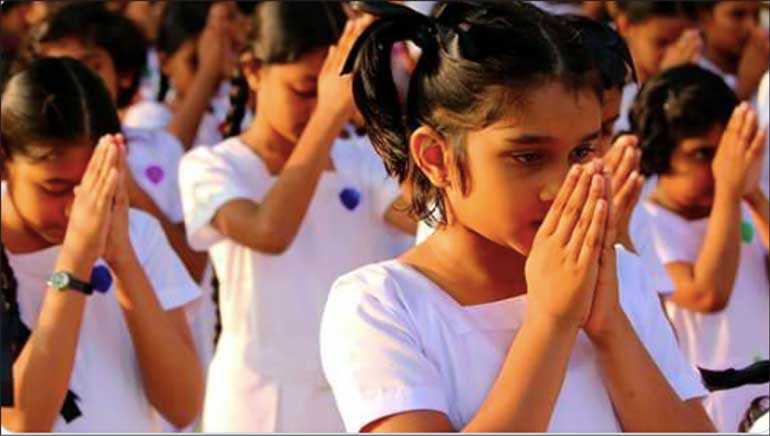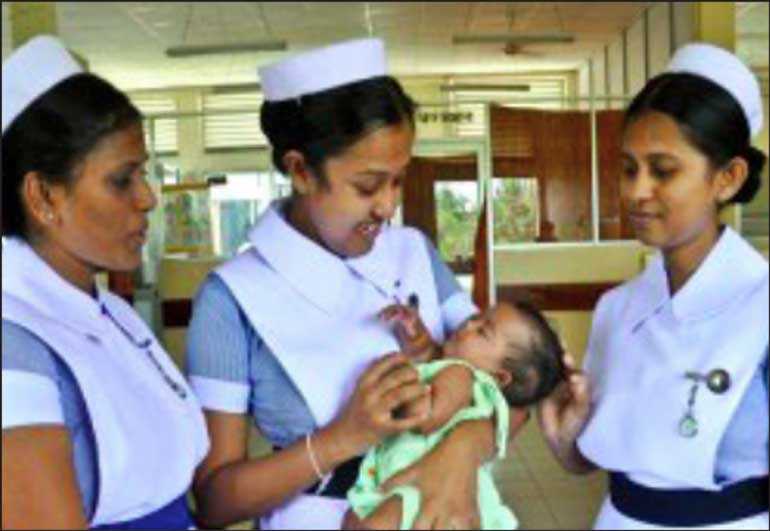Thursday Feb 26, 2026
Thursday Feb 26, 2026
Saturday, 5 October 2019 00:10 - - {{hitsCtrl.values.hits}}



By Srimal Fernando and Mizly Nizar
Sri Lanka will hold Presidential Elections on 16 November when around 15.7 million registered voters from across the country will vote to elect the country’s seventh Executive President to rule for the next five years. Of Sri Lanka’s population spread across 22 electoral divisions, around 80% are based in the rural areas. While the populace have various socio economic requirements that entail Government intervention, the election promises on welfare policies by the Presidential candidates will influence voter decision when casting ballots.
Since independence Sri Lanka followed social welfare policies that helped the country attain high achievements in human development. The current Human Development Index (HDI) ranking of 76 out of 189 countries has placed the nation in the high human development category ahead of countries with higher economic growth rates. Sri Lanka has been able to achieve this position mainly through the provision of free health and education for its masses.
When considering economic output, Sri Lanka has fared equally well reaching Upper Middle Income Status (UMIS) with a per Capita GDP of $ 4,100. While it took 70 years for the country to achieve these indicators, it however does not mean that income or resources are equally distributed among its population.
The provision of free healthcare over the years has helped the country achieve one of the best health indicators in the region. For instance, life expectancy at birth is 75.5 years and infant mortality is 8.5 per 1,000 live births. These indicators were achieved over seven decades through infrastructure development such as Government hospitals and clinics and the provision of human capital such as doctors and nurses trained through the Government’s free education schemes.
In 2018 alone Government expenditure on health was $ 1.3 billion. However, irrespective of these considerable achievements there remains much to be done to improve the distribution and quality of public healthcare services as many patients are driven towards obtaining private sector healthcare. This is evident from the high proportion of out of pocket expenditure on health which currently stands at 44% of the country’s total healthcare expenditure.
The current availability of infrastructure and human capital is insufficient to address the needs of the growing population. Hence it is vital to increase Government spending on health while having clear cut policies to improve public sector healthcare services for the next five years as well as for the longer term.
Similar to the provision of healthcare, the free education policy has provided the opportunity for around 4.2 million students across the country to access free education from primary school up to university. This system has helped produce many professionals who are employed locally and internationally. In order to provide equal educational opportunities to all children across the country the national program titled ‘the nearest school is the best school’ was launched recently. Such initiatives are important to be taken forward and if properly implemented would help children to obtain quality education in proximity.
As with health there are many areas for improvement in the education sector that need to be addressed in the short and long term. Firstly the education system has to be fine-tuned to cater to the country’s needs. More often there is a wide mismatch between the requirement in the employment market and the skill sets that the youth have acquired through public education. There is a massive requirement for soft skills and IT skills that are not adequately developed through the current education system.
Taking a step in the right direction the Government recently launched the smart school concept and the provision of tabs to A/L students to enhance their knowledge and IT skills. However, there needs to be a fair distribution of resources for schools across the country as a large number of schools in the rural sector do not have basic infrastructure facilities. For instance, 16% of the schools in the country do not have uninterrupted water facilities throughout the year and 3% of the schools do not have electricity.
Secondly, there is a large gap between the number of students qualifying to gain admission to universities and the limited places available in the higher education system to absorb such students. While 64% of the students who sit Advanced level obtain eligibility to enter university, only 19% of them gain admission to the Government universities. Based on their economic status, this leaves the remaining students to either pursue higher education in the private sector in-country or abroad, or give up tertiary education all together.
Large numbers of students leaving the country in pursuit of education results in the outflow of graduates as well as foreign exchange. Hence, it is vital to increase current Government expenditure on education currently at 1.9% of GDP to a much higher proportion to enhance the profile of education in the country and also help save much-needed foreign exchange and prevent brain drain.
Given the importance of the health and education sectors in the country in directly impacting the quality of life and contributing towards the country’s overall economic growth it is vital that polices are in place to address the shortcomings prevalent in these sectors. The Presidential hopeful’s election manifestos setting out short and long term policies on social welfare will be vital for the population to make their decisions when electing the new head of state. The next President elected should make good his/her election promises by transforming policies into effective action while also addressing policy gaps and overcoming challenges in order to set the country on a strong footing in the coming years.
(Srimal Fernando is a Doctoral Fellow at Jindal School of International Affairs (JSIA), India and a Global Editor of Diplomatic Society for South Africa. He won the 2018/2019 Best Journalist of the year award in South Africa. Mizly Nizar is a foreign policy analyst and a former visiting lecturer at The Bandaranaike Centre for International Studies and the Open University of Sri Lanka.)